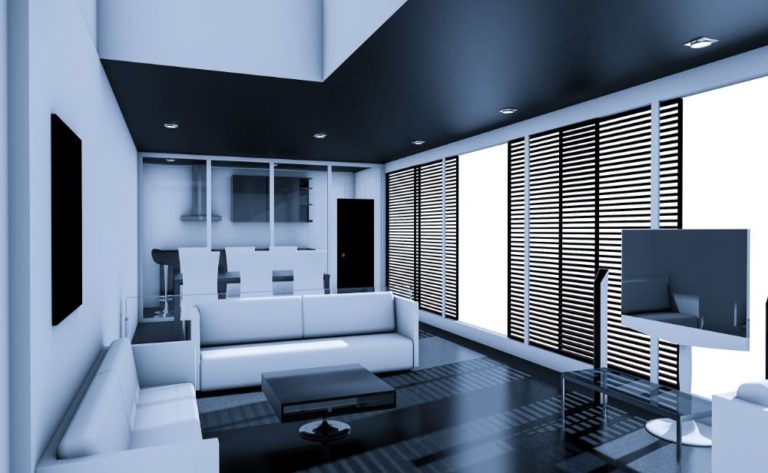What Are The Average HOA Fees In Northern Virginia?
The issue of what the typical HOA costs are in Northern Virginia is one of the most frequent inquiries I get from customers.
A monthly or quarterly payment for the services and amenities that are given in a particular neighborhood is known as an HOA fee, which stands for homeowners association charge. It is possible that it is a community consisting of townhouses rather than single-family detached homes. The homeowners association (HOA) is typically run by a board of property owners that have been chosen by the majority of the other homeowners.
The maintenance and repair of common areas, the removal of rubbish, and the installation and monitoring of community security systems are often included in the services. The kind of amenities provided by a community might vary, but some of the possibilities include swimming pools, tennis courts, walking routes, and playgrounds for children.
When you first start looking for a property in Northern Virginia, it is important to have an idea of the typical HOA fees that you will come across. The majority of the properties in this neighborhood do not have to pay HOA fees, but some of them do. It is really necessary to take this information into consideration because it has a direct impact on your housing budget.
The Typical Cost of Homeowners Association Fees in Northern Virginia Neighborhoods
I sell a lot of houses that are part of homeowner’s organizations, and the annual HOA fees range anywhere from $600 to $1,500 on average in the properties I come across. These are quite a bit less than condo fees, which are nearly always significantly higher than HOA costs. These are considerably more affordable.
This figure can change depending on a wide range of factors, one of which being the quantity of amenities that are offered within the neighborhood; nevertheless, it does not necessarily have any bearing on whether or not a community’s homes are more expensive than average. For instance, I recently sold a property in an older community for somewhat less than $1 million. The HOA costs for that community were approximately $120 per year.
However, in many communities, the importance of square footage cannot be overstated. For instance, a homeowner in the same neighborhood who owns a property with a larger residence may be required to pay higher HOA costs than a homeowner who owns a property with a lower size. This is based on the presumption that a larger home has a greater need for upkeep, such as a larger lawn area that has to be mowed, and houses a greater number of residents who make use of the community’s services.
The amount of community upkeep that is required also plays a significant impact in the choice that the board of a HOA makes about the amount of money that property owners are charged.
What Exactly Does It Cover When You Pay HOA Fees?
The scope of the benefits included in HOA dues can be as widely varied as the variety of fees described before. Trash collection, snow removal, and landscaping and grounds upkeep are often included in the standard set of services that are included in the management fees paid by homeowners associations.
You should also budget for greater HOA costs if your neighbourhood has shared recreational amenities like a clubhouse with a pool, a park, or a playground. These would cover the cost of the necessary utilities in the communal areas, such the electricity, water, and Wi-Fi, as well as pest management.
An HOA board also needs to set aside reserve funds for emergency major repairs such as replacing the old, worn-out clubhouse roof, as well as projects such as parking resurfacing, swimming pool and exterior lighting repairs and replacements, etc. Reserve funds can also be used for projects like resurfacing parking lots.
In addition, the costs may include the enforcement of HOA rules in order to guarantee that the aesthetic appeal of each house is appropriately maintained. This component is essential to maintaining, and perhaps potentially enhancing, the value of properties located inside the community.
Are There Any Changes to the HOA Fees From Year to Year?
The regular homeowner’s association fees are generally predictable because they are based on the most recent rates of utilities, salaries, and prices charged by local vendors in the county in which the community is located. These costs account for the majority of the total fee amount. As a result, the growth won’t be significant, but it should be anticipated over time.
An HOA board has the authority to approve a special assessment in certain circumstances. A special assessment is an additional sum that is contributed to the fund reserves of a community. It pays for any urgent repairs that need to be done in common spaces owing to damages caused by natural disasters or the age of the structure. The board must first approve a resolution in order to implement this fee, after which they must inform the neighborhood. It is not essential to conduct a poll among homeowners.
A one-time payment or additional payments on top of the standard monthly or quarterly fees can be made in the form of a special assessment, but how this fee is levied is determined by the homeowners in the community and their preferences.
Which Categories Of Houses Are Exempt From Paying HOA Fees?
There are several neighborhood’s with older homes that do not have homeowner association fees. For instance, as you approach the District of Columbia, you’ll see that many of the areas with homes built in the 1940s and 1950s do not have homeowners associations. These neighborhood’s tend to be older.
Despite the fact that homeowner’s organizations are present in the vast majority of Northern Virginia townhome neighborhoods, there are a few exceptions. For example, it’s not uncommon to see brick duplexes and older brick row houses built in the 1940s and 1950s in many sections of Arlington and Alexandria that don’t have homeowner’s associations (HOAs). These homes were often constructed during the same time period. I recently assisted some buyer customers in the Del Ray area in locating an amazing brick row house in a neighborhood that does not have a homeowners association.
Questions and Answers Regarding Northern Virginia’s Typical HOA Fees
How Are the Fees for the HOA Determined?
A list of expenses, including employee salary, vendor services, and HOA management fees, is compiled by the board of directors of the homeowners association (HOA). These expenses include the upkeep, repair, and utility costs of all of the community’s common facilities. An additional category of costs is that of insurance.
After that, the entire price is divided by the total number of residences in the neighborhood. There are HOAs that determine the fee based on the size of each individual property. Homeowners that occupy larger areas of property would be expected to pay greater fees as a result.
Is It A Good Idea To Purchase A House That Has An HOA?
It is dependent on the requirements and tastes of your home. There are residents who would rather have the final say on the style and design of their home and yard, even though this may not be in accordance with the guidelines of their HOA. Others would be willing to pay for the luxury of having amenities such as a park, playground, and swimming pool conveniently located within the community.
Do Renters Have to Pay HOA Fees?
The majority of landlords are required to pay the HOA fees since late payments can result in the HOA imposing penalties or even taking legal action to foreclose on a property. Very few landlords are ready to put their properties in the hands of tenants who are responsible for taking on such a risk.
What Does It Mean to Pay an Initiation Fee to a HOA?
The HOA initiation fee is the sum that is charged to a property inside the community upon transfer to another owner. This price is also sometimes referred to as the buy-in fee. This amount varies significantly from community to community; some communities do not charge anything more than a little administration fee, while others require a much bigger upfront payment.
Who is responsible for paying the homeowner’s association transfer fees—the buyer or the seller?
It is customary for the purchaser to be responsible for paying the HOA transfer fees; however, sellers may on occasion include these costs in the asking price of their home. There are some transactions in which the commission is divided between the buyer and the seller.
Is There A Fee That Is Charged To Residents Who Make Their HOA Payments Late?
Yes, overdue accounts incur fines. Because the amount varies from one HOA to the next, it is important to familiarise yourself with the governing guidelines of the board so that you may properly establish your expectations.
It is essential that you are aware that a homeowner’s association (HOA) has the authority to initiate the foreclosure process on a property if payments have been overdue for a lengthy period of time. On the other hand, the majority of HOAs are willing to work out payment schedules. Therefore, if you are experiencing difficulties with your finances, it would be in your best interest to contact the board as soon as possible and negotiate your payment conditions.
Conclusion
There are more positives associated with living in a community that is governed by a homeowners association than there are negatives, and because there is such a wide range of HOA fees available, you have a wide variety of choices available to you when selecting a home to buy that is suitable for both your way of life and your financial situation.






